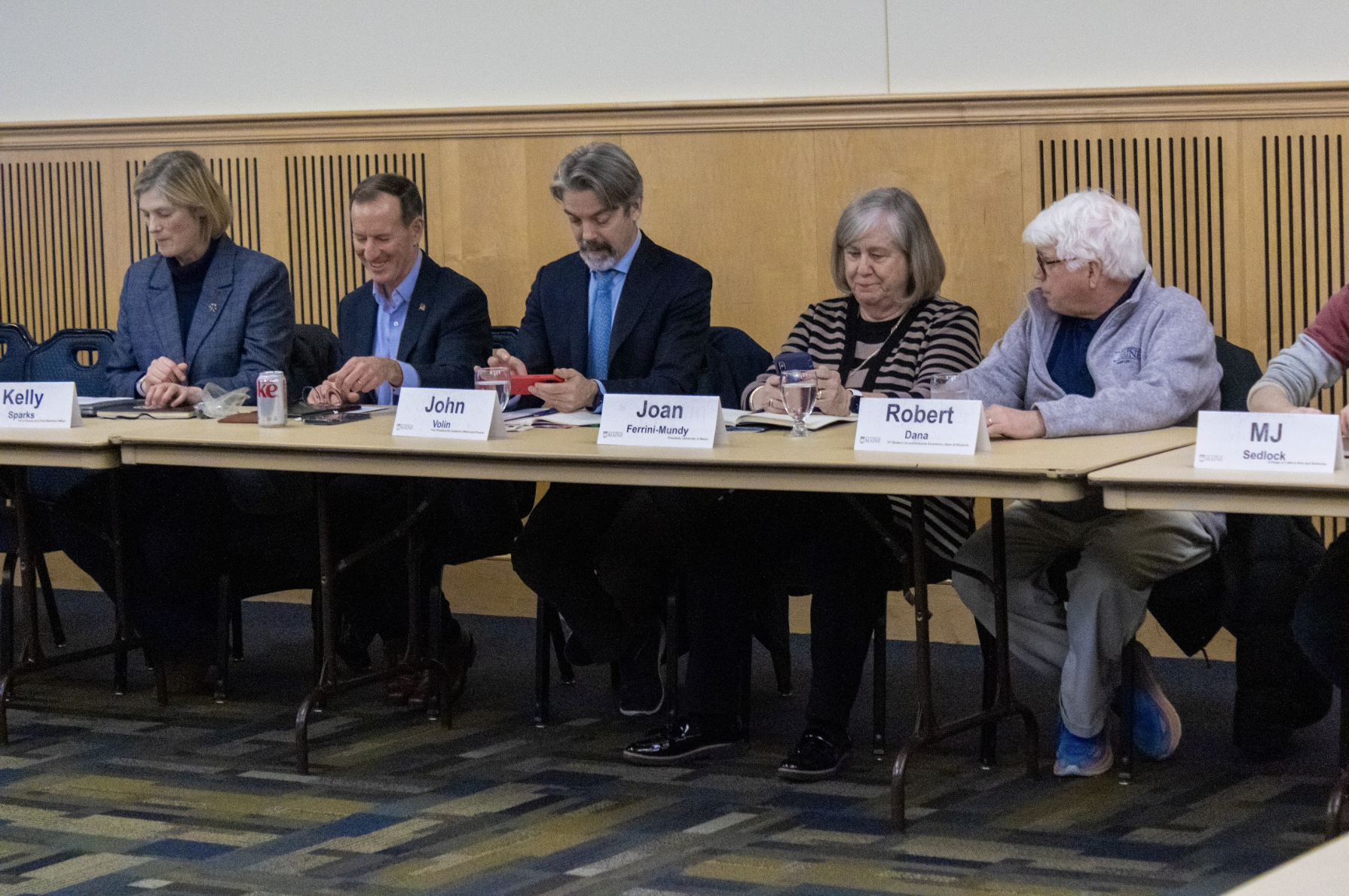On April 3, the University of Maine Faculty Senate convened in the Bangor Room of the Memorial Union to highlight the present progress of student success initiatives in curbing retention rates. UMS instructors also raised concerns against administrative actions, from TA eliminations to potential processing delays in the updated FAFSA.
Associate Provost for Student Success and Innovation Scott Marzilli shared that the UMaine Black Bear Early Alert system for first-year students significantly expanded their accessibility to faculty support and student tutoring services. During the Fall 2023 and Spring 2024 semesters, 81 faculty and staff supported students struggling with curriculum course loads.
Additionally, 181 instructors issued early alerts, ensuring that 742 first-year students attained academic assistance to ease their transition from high school to college curriculum expectations.
“We know that the first-term GPA is a strong predictor of whether or not students are ever going to graduate from the university,” said Associate Provost Marzilli. He elaborated that first-year students attained a 3% increase in their fall semester GPAs, and 50 additional students obtained a term GPA of 2.0 or higher compared to the 2022 academic year.
“If we look at the raw mean term GPA, this is the highest in five years. Term GPA is typically correlated with retention, so we’re hopeful that we’ll see some positive results in the fall as well,” Marzilli said.
Furthermore, 57% of students revealed that they had not utilized peer tutoring resources before the system-wide institution of an outside firm, Knack, which has delivered 3,951 hours of tutorship and provided 196 work-study job opportunities. Tutoring session offerings have also increased in scope from 36 courses to 110 courses within a year.
“There were 1,168 hours tutored in the fall with the old program and 1,742 hours tutored in the fall with the new program, a 49% increase in the number of hours tutored. To me, this is a win-win. We’re able to hire more students, give them a high-quality opportunity and impact a tremendous number of students,” the Associate Provost explained.
Instructor Sarah Lindahl asked whether or not the early alert system could be modified to reach more than first year students to improve its impact ratios throughout campus. “If I can’t provide assistance for students who need them, the program is missing an important component, in my opinion,” Lindahl said.
Marzilli concurred with the eventual goal of expanding the accessibility of early alerts to assist a wider range of students once the program fully acclimates to UMS campuses.
Faculty Senate Secretary Kathryn Slott referred to the latest TA position eliminations as “wreaking havoc in a lot of departments” and questioned whether the administration would refrain from authorizing terminations moving forward. President Joan Ferrini-Mundy assured that the university will “take a deeper dive into that topic,”while proactively considering long-term budget readjustments to prevent these challenging cases.
Professor Matthew Hawkyard raised concerns regarding the ongoing transition from the prior FAFSA system to the newer version, probing the administration’s response to issues at the university level. An administration official reassured that the May 1 FAFSA deadline will remain unaltered for prospective students receiving merit-based scholarships and financial aid allocations for the upcoming academic year.
The Faculty Senate unanimously approved a motion from academic affairs to alleviate overload concerns that have surfaced when only part-time faculty and TAs teach general education courses. Upon administrative adoption, the motion will facilitate a new assessment plan and grant permission to begin evaluating each general education course at least once throughout the year to determine whether course offerings should be available annually. The new assessment plan also authorizes the yearly review and revision of learning outcomes and common rubrics within these courses.
“It gives faculty an opportunity to consistently offer feedback, annually, about ways to examine the outcomes and even suggest improvements to rubrics themselves,” said Dee Nichols, a faculty member.
While the university has remained outspoken in its commitment to solidifying the UMS R1 classification, Professor Craig Mason argued that more resources are required to implement the innovative initiatives expected from a renowned research academic institution.
“I don’t think anyone questions that our president, the provost, the chancellor, the trustees, and the governor firmly support and value R1,” Mason said, “but if they really do, why don’t we see that translating into resources on campus?”
Ferrini-Mundy expressed willingness to launch “an information-sharing campaign” to increase awareness of how current assets are incorporated into the system and keep the public informed as future funds are allocated at the state and federal level to strengthen the university’s R1 status.








